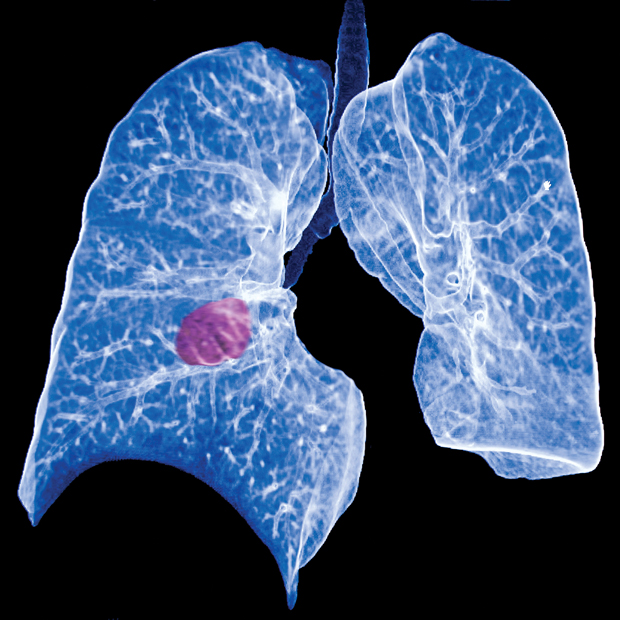FDA warns about clarithromycin in heart disease
This column reviews details on recent recalls, warnings, and approvals.
Recalls, warnings, and alerts
A warning about an increased risk of heart problems or death in patients with heart disease who take clarithromycin (Biaxin). Clinicians should consider prescribing other antibiotics to these patients, the FDA recommended. The agency based its recommendation on results from a 10-year follow-up study of a large clinical trial in patients with coronary heart disease, which first observed the safety issue after one year of follow-up.
A global market withdrawal of the multiple sclerosis drug daclizumab (Zinbryta) amid concerns about the drug's benefit-to-risk profile. Worldwide, there have been 12 reports of serious inflammatory brain disorders in patients using the drug. The FDA is working with manufacturers to ensure that clinicians have the information they need to safely transition patients on the drug to another treatment.

A recall of certain Alka-Seltzer Plus products due to a labeling error. Affected products may have different ingredients listed on the front sticker of the carton than those listed on the back label. Products included in the recall were sold in the U.S. at Walmart, CVS, and Kroger stores after Feb. 9, 2018, and can be identified by the Bayer logo on the bottom left of the front label: Those with green and orange backgrounds are included in the recall.
A warning to all three duodenoscope manufacturers for failing to fulfill requirements to conduct studies assessing the real-world effectiveness of device reprocessing. In 2015, the FDA ordered manufacturers Olympus, Fujifilm, and Pentax to conduct postmarket surveillance studies in order to determine the ability of health care facilities to properly clean and disinfect the devices. If the companies fail to properly respond to the warning letter, the FDA may take additional punitive action.
A class I recall of 48 implantable cardioverter defibrillators (ICDs) and cardiac resynchronization therapy with defibrillation (CRT-D) devices by Medtronic due to a manufacturing error. The defect may prevent the devices from delivering electrical shock therapy, resulting in serious patient injury or death. Recalled devices were manufactured between July 13, 2013, and Aug. 8, 2017.
A warning not to use drug products from Cantrell Drug Company, including opioids and other drugs intended for sterile injection. The FDA is concerned about the company's compounding operations and its ability to ensure quality and sterility assurance and has sought legal action to prevent it from producing and distributing additional drugs.
Recall and destruction of a large number of kratom-containing dietary supplements. Affected products were manufactured and distributed nationwide by Divinity Products Distribution under the brand names Botany Bay, Enhance Your Life, and Divinity. The FDA maintains that there is no evidence indicating that the plant is safe or effective for any medical use. In addition, the FDA and CDC are monitoring a Salmonella outbreak associated with kratom products that has spanned across 20 states.
Miscellaneous
Advanced notice of proposed steps to lower the nicotine content in cigarettes to nonaddictive or minimally addictive levels. Questions remain about the appropriate nicotine levels and whether a product standard should be applied gradually or all at once. A public comment period ends on June 14, 2018.
Approvals
Expanded approval of durvalumab (Imfinzi) to treat patients with stage III non-small-cell lung cancer with unresectable tumors whose cancer has not progressed after chemoradiation. The drug was previously approved to treat certain patients with locally advanced or metastatic bladder cancer. Approval for the new indication was based on a randomized trial of 713 patients in which those taking the drug had a median of 16.8 months of progression-free survival, compared to 5.6 months among those on placebo. Common side effects are cough, fatigue, pneumonitis, upper respiratory tract infections, dyspnea, and rash. Serious risks include immune-mediated side effects, infection, and infusion-related reactions.
Authorization of the first direct-to- consumer test to report on three specific BRCA1/BRCA2 breast cancer gene mutations that are most common in people of Ashkenazi Jewish descent. The Personal Genome Service Genetic Health Risk Report analyzes DNA from a self-collected saliva sample. The test only detects three out of more than 1,000 known BRCA mutations, so a negative result does not rule out increased cancer risk.
Ibalizumab-uiyk (Trogarzo) to treat adults with HIV who are heavily treatment-experienced but whose HIV infections cannot be successfully treated with currently available therapies. The orphan drug is given intravenously by a trained medical professional once every 14 days and is used in combination with other antiretrovirals. In a trial of 40 patients, 43% achieved HIV RNA suppression after 24 weeks of treatment. In a total of 292 patients exposed to the drug infusion, the most common adverse reactions were diarrhea, dizziness, nausea, and rash. Serious side effects included rash and immune reconstitution syndrome.
Expanded approval of brentuximab vedotin (Adcetris) to treat adults with previously untreated stage III or IV classical Hodgkin lymphoma in combination with chemotherapy. The drug was previously approved to treat classical Hodgkin lymphoma after relapse and after stem-cell transplant for patients at high risk of relapse or progression, as well as to treat systemic and primary cutaneous anaplastic large-cell lymphoma after other treatment failure.
The first tests to screen blood donors for the tickborne parasite Babesia microti . The Imugen B. microti Arrayed Fluorescent Immunoassay detects antibodies to B. microti in human plasma samples, and the Imugen B. microti Nucleic Acid Test detects B. microti DNA in human whole blood samples.
First-time generic approvals
Cinacalcet hydrochloride tablets (30 mg [base], 60 mg [base], and 90 mg [base]) to treat secondary hyperparathyroidism in adults with chronic kidney disease on dialysis, hypercalcemia in adults with parathyroid carcinoma, and severe hypercalcemia in adults with primary hyperparathyroidism who are unable to have parathyroidectomy. (Brand name: Sensipar)
Desflurane USP (liquid for inhalation) for general anesthesia. (Brand name: Suprane)
Sumatriptan and naproxen tablets (85 mg/500 mg) to treat adults with acute migraine, with or without aura. (Brand name: Treximet)
Trientine hydrochloride capsules USP (250 mg) to treat patients with Wilson's disease when continued treatment with penicillamine is not possible due to intolerable or life-threatening side effects. (Brand name: Syprine)
Note: The FDA states that drugs are not always commercially available immediately after approval.




